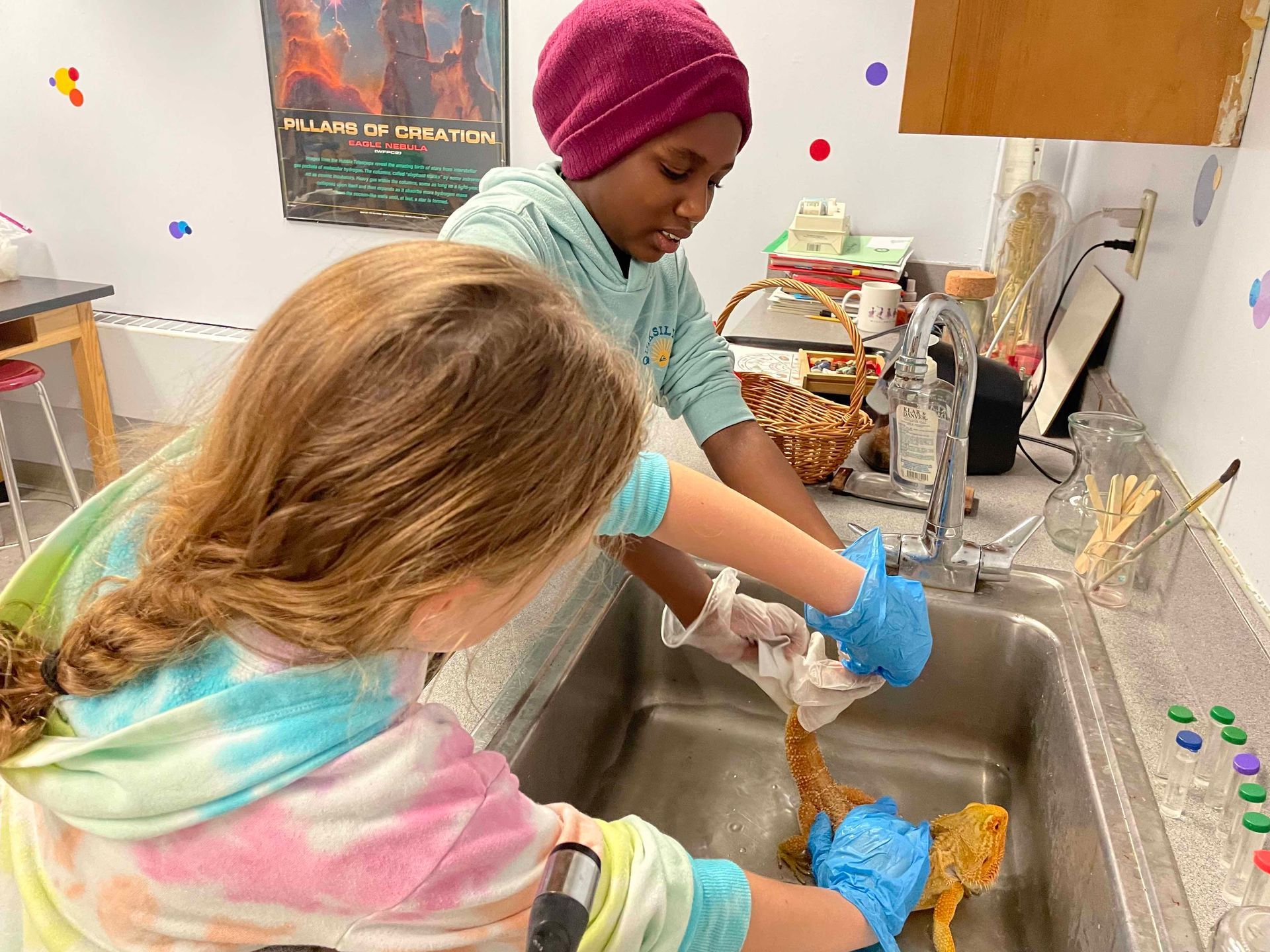
This is a quote from Mr. Matthew Z. Johnson’s book, Emotion in Life and Music. Mr. Johnson, our Music Director, approaches music education as an integral part of the child’s development.
The T.E.C. music and art programs are based on the precept that music and art are nature’s reward for cognitive fitness, a pleasurable means of encouraging wholesomeness of the mind. Therefore music and art, analogously with pursuit of physical fitness, are approached as a means of cultivating the student’s moral and emotional well-being and sense of interest in and enjoyment of his own mind and spirit.
The music program at T.E.C. focuses on:
- Memorizing and singing songs in English and foreign languages
- Learning to play instruments
- Understanding music theory concepts and music notation
- Studying composers and music history; learning to appreciate great music by attending performances at concert halls
- Engaging in hands-on Maker activities
- Taking individual instrumental lessons (Suzuki Method, optional add-on)
- Learning music from around the world with our Community Partners at Crocodile River Music.
In addition to the academic skills, students develop Public Speaking skills. They learn to articulate, enunciate and exaggerate words, and learn to speak clearly, make eye contact, and develop confidence while singing to an audience.
Why Do We Sing Songs in Foreign Languages?
Every year, students at T.E.C. participate in Continent Studies and develop research skills as they become “experts” in their area of research topics. As they learn about countries from a continent, teachers introduce exercises in practical life, art and language areas. An exposure to foreign languages helps students learn about the people and cultures around the world.
As students prepare for The Night of the Arts, they memorize songs from different countries in various languages. This helps them to:
- Understand the value systems of a different culture
- Listen to new vocabulary words and develop comprehension through songs
- Develop reading, writing and grammar skills
- Learn about the geographical features of the country
- Relate to children from foreign countries
Click HERE for a video for “Lakdi Ki Kathi,” a famous childhood song from India.
Our final performance is The Night of the Arts, where learning comes together in a classical music performance. This year, students at The T.E.C. Elementary School will perform a play that they have written collaboratively connecting songs from Asia. Students will sing songs in many Asian languages, act various scenes, recite historical passages from memory, participate in choreography, design and make props and scenery to put on their own production for family, friends, staff, and guests.
We are excited! Please join us for our Night of the Arts celebration!
5 Things You Can Do To Bring Music To Your Everyday Life
1. Sing songs together, selected by moral/emotional lessons. Discuss the lyrics and the emotional meaning of the songs you sing.
2.Listen to great music from the Enlightenment (Mozart, Beethoven, Mendelssohn). Discuss or write about these classical listening examples. Use complete sentences and focus on words naming sounds and emotions.
3.Practice making sounds using three contrasts: high vs low, loud vs soft, fast vs slow.
4.Practice counting claps in rhythm, using games.
5.Maker activities: make rainsticks and shakers using cups and dry noodles; systematically compare the sounds produced with varied numbers of noodles. Make a dry erase music board. String and tune a ukulele. Using a tuner app, tune the strings on the melody harp.


